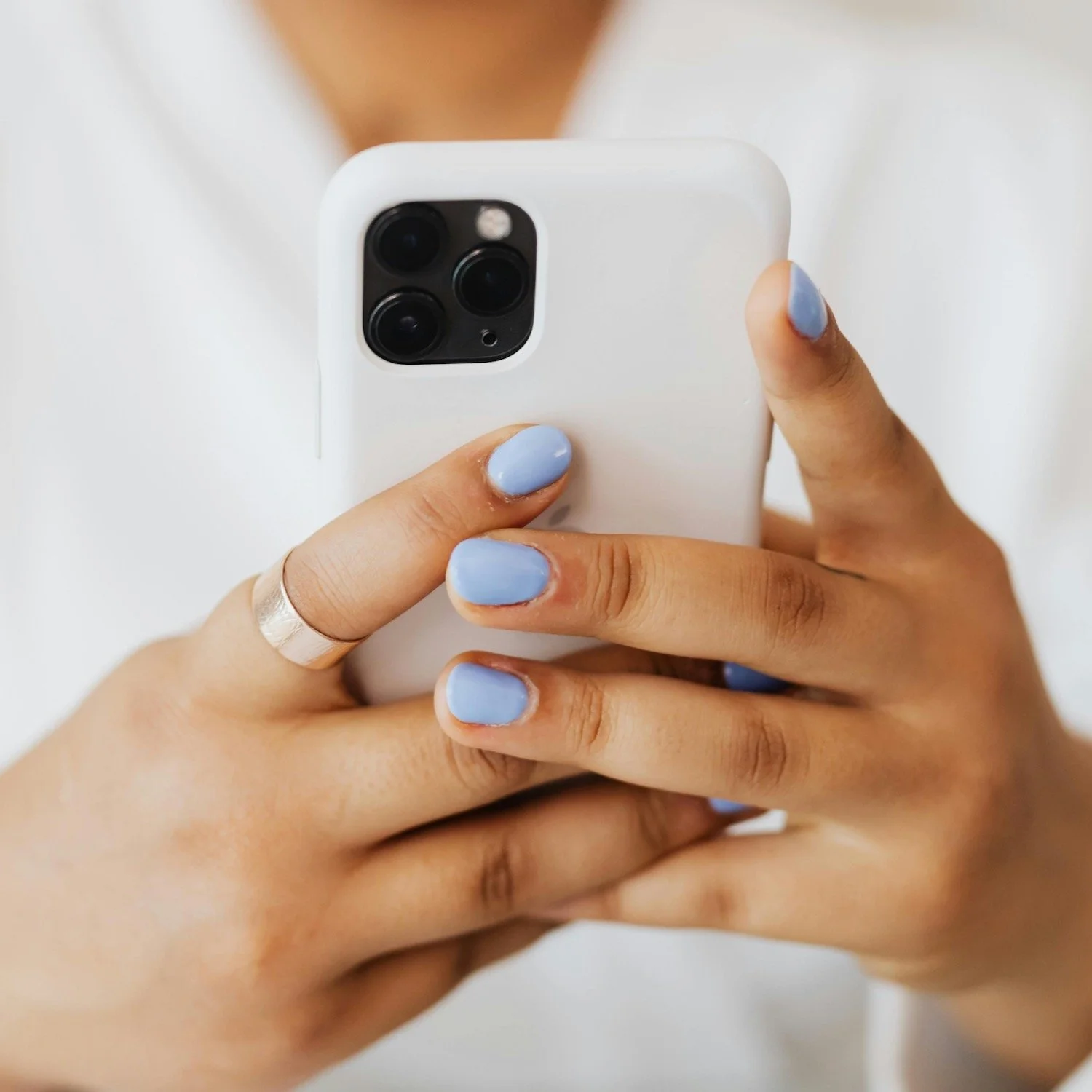Dr. Alfiee Breland-Noble Wants Us To Talk About Mental Health A Lot More
by The Candidly Team
Being stuck at home has forced us to face our mental health demons, whether we’re ready or not.
So we posed a few questions to Dr. Alfiee Breland-Noble, a brilliant psychologist, about everything from the physical effects of trauma to how to protect the mental health of our kids.
Dr. Alfiee is a mental health expert, scientist, and founder of a mental health nonprofit, the AAKOMA Project, which focuses on the mental health of marginalized youth. She’s also actively working to destigmatize conversations around mental health, as well as provide access to mental health resources and care to all communities.
We asked her how families are coping with the quarantine. How to help our children manage their mental health. How to make access to mental health care and resources more widely available for all.
Her answers were helpful. And illuminating.
Q: What are the biggest misconceptions about mental health?
Dr. Alfiee: The first big misconception is the idea that mental health and mental illness are dichotomous—you either are completely mentally healthy, or you’re mentally ill. And that’s just not true. We fail to teach people that mental illness exists on a continuum, which means that everybody is on it.
The second is that mental health is not as important as physical health. We can talk all day about the importance of reducing cardiovascular disease, but we spend so much time talking about the physical that we rarely take time to talk about the emotional and mental.
And the third is stigma. We know mental illness is stigmatized. Every single person deals with stigma related to mental illness, but we still don’t acknowledge how big that stigma is and the toll it can take.
Q: How are children uniquely affected by these misconceptions about mental health?
Dr. Alfiee: There’s this idea that children don’t have anything to worry about because they’re just kids. But, of course they do!
The field of child and adolescent mental health has only really grown in the last 20-30 years. And before that, we just assumed that kids were an extension of adults—but they’re absolutely not.
Depression does not look the same in adults and children. Kids don’t have the same language or emotional maturity or life experience, so their depression is going to look different.
Which is why we should be talking to little kids about mental health—even babies. Once they’re old enough to communicate, we need to be talking about mental health.
Q: What is “vicarious” trauma?
Dr. Alfiee: The idea of vicarious trauma is that you don’t have to be the person who physically experiences a traumatic event to feel traumatized by it. You can also call it “secondary trauma”—you can be watching it, someone can tell you the story, you can read about it.
We tend to think about trauma as events like a car crash or a natural disaster.
But what happened to Christian Cooper in Central Park—that’s also traumatizing. And I don’t have to be Christian Cooper to watch that video and feel traumatized. Christian Cooper could be my brother or spouse or my dad. I don’t have to physically be there to know the feelings that the trauma engenders and probably engendered in him. Watching the video made me worry about someone calling the police, and if the police showed up, what could’ve happened? I don’t have to be there to feel the pain.
So vicarious trauma is really about how you can be removed from the physical experience of the traumatic event, and still have a visceral, emotional reaction to what you’re seeing.
Q: How does trauma affect peoples’ overall mental health, physical health, and relationships?
Dr. Alfiee: Daily exposure to trauma can create physical health disparities. And there are genetic impacts and genetic changes that happen from overexposure to trauma.
So if you look at marginalized communities—like queer communities of color, for example, who have multiple layers of marginalization—the mental health impacts in terms of suicidal thoughts are FAR higher than white, queer communities.
When you look at the prevalence of cardiovascular disease in marginalized groups—like African Americans—it’s horrendous compared to other groups.
These physical health disparities are a direct manifestation of trauma.
Q: What mental health consequences are you already seeing from COVID, the quarantine, and everything else that’s happened this year?
Dr. Alfiee: First, the conversation around mental health has been pushed to the center because so many people have been stuck at home and are facing their mental health problems.
Second, a lot of people with persistent mental health issues don’t have access to care right now. That’s a big conversation—what is happening to those people?
And both of these factors are forcing us all to find other ways to cope, which is driving this conversation around how to better take care of ourselves. Before, you could run away from mental illness by escaping into work and busyness. You didn’t have to think about your issues because you could distract yourself.
Now we’re being forced to be more still, and you can’t run away from it. All of this has really forced people to deal with their own mental health.
Q: How are current events—the pandemic, the quarantine, the school closures-- affecting the mental health of families?
Dr. Alfiee: Interestingly, there has been a profound impact on adults who are facing the problems that their kids are struggling with.
Because our kids aren’t at school for 8 hours—they’re home. Everyday. All day. And now you have to pay attention to their behavior, so parents are witnessing behavior that they had no idea existed. Or behavior that they had heard teachers mention before, but didn’t believe it or see it themselves until now.
This is leading to a reckoning for some parents that their children aren’t as “perfect” as they thought, or that their children are struggling with things they failed to notice or acknowledge before. Many parents are having to deal with things that they probably don’t feel equipped to deal with—and it’s normal to feel that way, because most parents are NOT mental health professionals.
Q: How are current events shaping the mental health of children and adolescents? What are the long-term implications?
Dr. Alfiee: There’s definitely an added sense of isolation of being home all the time and away from their friends. There’s also a downward spiral of being focused on social media all the time. They’re looking at screens all day—phones, laptops, TV screens—and it’s not being monitored because parents don’t have time to monitor their kids screen usage all day long.
And that’s detracting from children’s mental health.
With everything going on right now, everything they’re learning about and reading about on these screens is unfiltered, and they might not feel like they have anybody they can talk to about it or help them process it. Parents might not know how to talk to their kids about these issues, which is perfectly normal.
Because how do you have a conversation about George Floyd and Breonna Taylor? It becomes a whole conversation about institutionalized racism and structures that allow these terrible events to happen.
So there’s an exposure to things that some kids are too young to be exposed to, coupled with some parents—for real reasons—not having the tools for knowing how to help their kids process and cope with all of this.
All of this together is an awful storm of challenges that, I think, we’ll spend the next decade trying to unravel.
Q: How do parents prioritize their children’s mental health while still having honest conversations without traumatizing them? And how do parents do this if they don’t have the mechanisms or coping skills themselves? Do you have any practical tips?
Dr. Alfiee: I run a non-profit called AAKOMA, and we came up an easy way to help parents who have children struggling with mental health issues but who don’t have easy access to mental health care resources.
It’s a set of tabletop cards that come in a PDF that you can print, and there are 6 cards that you cut out. It’s very simple—all you need is a paper, printer, and scissors. And the cards have mental healthcare tips.
Some of the tips are for parents and some are for kids. We put them in lay-person’s terms with actionable tips, which gets us to take care of our mental health and the mental health of our children in small, easy ways.
So, for example, one of them is a tip for parents that says, “structure your child’s day.” You don’t have to be a genius or someone with a college degree to understand what that means. Maybe it’s having them spend an hour helping you clean the house, which helps to teach them to be productive, it teaches them to take care of the environment around them, and it’s engaging with them and spending time with them.
One tips for kids is just, “take a break from social media.” We know they’re not going to stop looking at their phones all together. But seeing the suggestion, written down, gives them a reminder to actually do it, and telling them to take 30 minutes off from their phone gives them a clear, defined time limit. Or maybe you start small—take 10 minutes, and put your phone in another room, and just don’t look at it for 10 minutes.
So the easiest way to give people support is to give people ideas, because some parents just don’t know where to begin. It’s covert psychoeducation, and helps destigmatize mental health.
Q: How can we make mental health services more accessible to all, especially underserved communities?
Dr. Alfiee: Truthfully, the way the healthcare system is structured, I don’t know what the solution is for making sure everyone has equal access to mental healthcare. But until everyone does have equal access, we have to let people know that they need to be at least thinking about their mental health.
So the first thing we do is talk about it as much as possible. The more that we can normalize the conversation around mental health, the greater opportunity we have to bring people out of the shadows.
The second is that we support organizations that are trying to do the work of taking care of people’s mental health. Specifically, supporting organizations that give people tools and coping strategies. So many organizations are sharing helpful tools on the web, pushing out content that uplifts and supports people, even if it’s just stress management ideas they share on Instagram.
And the final thing is we have to empower people to recognize and understand that you can’t have good overall physical health if you don’t have good mental health. Everything starts with mental health. We have to give ourselves permission, no matter what’s going on around us, to say that our mental health is important. It doesn’t matter what your friends or family or culture says—everybody deserves optimal mental health. So give yourself permission to have it and work towards it.









